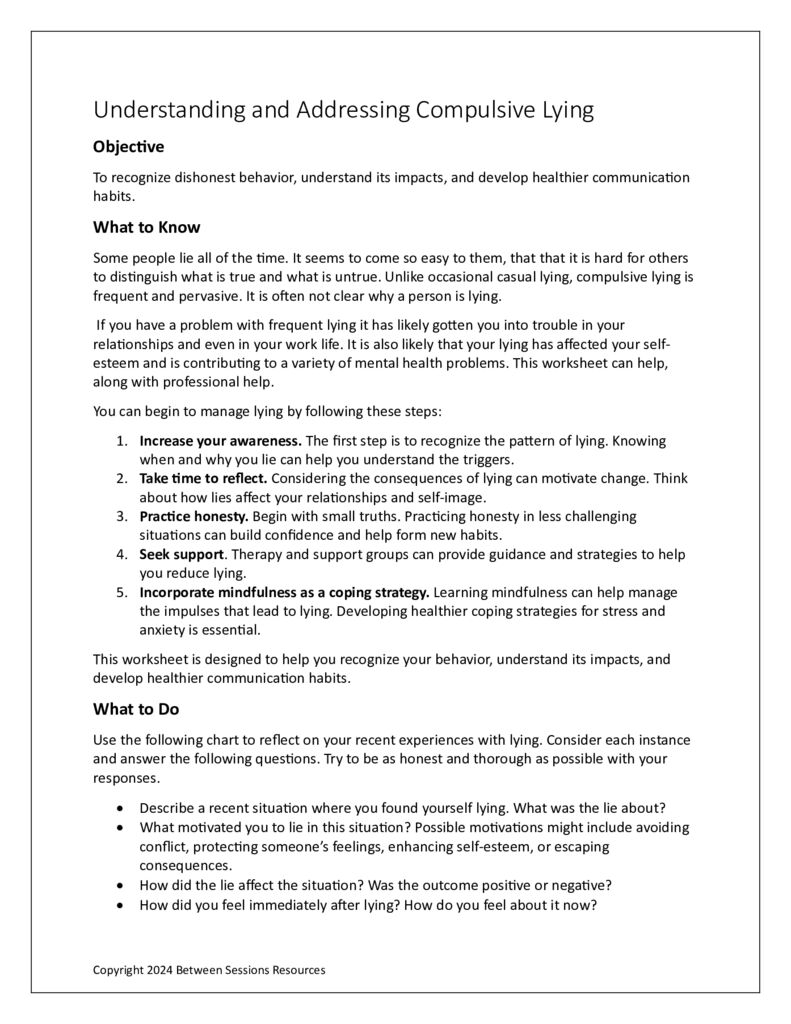Studies tell us that when professionals prescribe therapeutic homework, clients report significantly better outcomes. Our worksheets are derived from evidence-based therapies, and they are designed by experienced professionals. Use the navigation links on the left of this page to view tools in a specific category. Or use the search box at the top of this page to find the exact tool you are looking for.
To modify the tools, click the ‘Send to Client’ button by each tool to open the Psychology Forms Filler. You can then edit the tool as you see fit and either print it out or send it to a client to be filled out online. Click here for a tutorial on using the Psychology Forms Filler.
If you can’t find what you are looking for on this site, please let us know by
clicking here and our team of writers, graphic artists, and therapists will custom-design it for you.
This worksheet is designed to help adults set boundaries on their regular media and social media so that they don’t become overwhelmed by the constant flow of news. The worksheet provides specific recommendations for people to track and limit their media time and includes a chart to help them keep track of their time, the platforms they use, and their moods. (0724. media, social media, anxiety, depression)
This worksheet goes beyond the conventional wisdom of telling people to connect with others who are like them (bonding) and encourages them to also make social connections with people who are not like them (bridging). The worksheet focuses on helping people set goals to become more socially active and to take small steps to achieve those goals. (0724, depression, isolation, loneliness)
This worksheet is intended to help people manage their mental and emotional resources as part of a Wellness Plan. It helps them identify how to make “deposits” with self-care activities, positive relationships, and acquiring new psychological skills and to be aware of when they make “withdrawals” by overloading their lives with stress, accepting thoughts as true, or relying on self-defeating habits to cope with problems. (0724, wellness, stress, habits, lifestyle)
Created by the National Alliance for Children’s Grief, this booklet gives adults guidance on how to talk to kids and teens following the death of a loved one. It includes guidance on subjects like viewing the body, explaining what happens to the body, and how to involve children and teens in end-of-life rituals and memorials. This is a thoughtful and comprehensive guide with links to a variety of other resources. (0724, death, grief, grieving, loss, healing)
This worksheet is intended to take people who have experienced trauma through the process of CPT including understanding thoughts and feelings associated with the trauma, writing about and discussing the experiences related to the trauma, challenging harmful beliefs related to the trauma, and developing more realistic thoughts. (0724, trauma, PTSD, anxiety, CPT)
This worksheet is designed to help people identify signs of imbalance in their relations and learn new tools to increase harmony. It gives people a list of indicators that their relationship may be imbalanced (i.e. one person always apologizes, one or both people feel unfulfilled) and the worksheet provides thoughtful discussion questions to facilitate understanding. (0724. marriage counseling, relationships, family therapy)
This mood log can help people keep track of triggers, moods, and patterns affecting their emotional regulation. (0624, moods, Bipolar Disorder, depression anxiety, assessment)
This worksheet suggests that people make a playlist to help them shift their mood if they are angry, depressed, anxious, or upset. It guides them to select a song that reflects their current feelings, and then several transition songs. The playlist ends with a song that could trigger a desired emotion. (0624, depression, music therapy, mood, emotional regulation)
This worksheet is designed to help people visually explore and organize their thoughts and feelings. In drawing a map, people are asked to reflect on connections between thoughts and feelings, boundaries that should be put in place, and more. (0524, mind map, insight, planning, coaching)
This worksheet is intended to help people recognize dishonest behavior, understand its impacts, and develop healthier communication habits. It explores how compulsive lying can affect relationships and contribute to other mental health problems. (0524, lying, pathological lying, compulsive lying)










